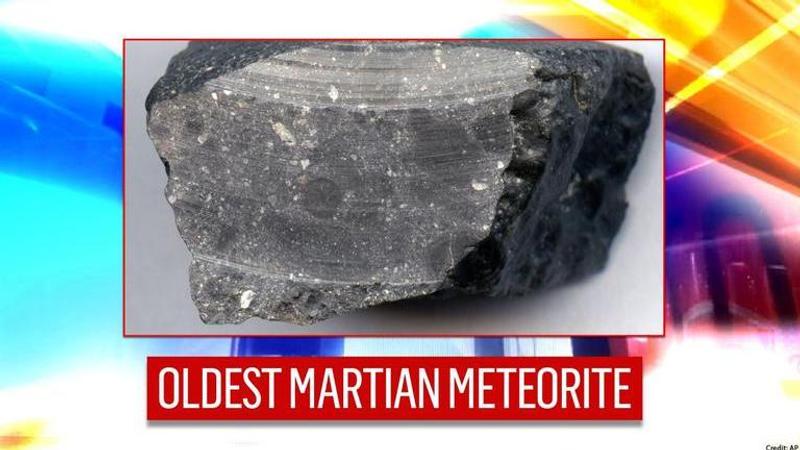Published 12:09 IST, November 2nd 2020
Meteorite found in Sahara reveals water existed on Mars over 4 billion years ago
A meteorite that was discovered in 2012 has revealed mineral composition of the rock shows that water may have been present on Mars earlier than thought.

A meteorite that was discovered in the Sahara desert in 2012 has revealed the presence of water on Mars over 4 billion years ago. The meteorite, that scientists had said was from Mars after a year of its discovery have confirmed the existence of water on the Red Planet prior to what was estimated before. A pair of meteorites were discovered eight years ago in North West Africa, 50 grams from one of which was taken by scientists for analysis.
Water existed earlier than thought
According to the University of Tokyo, scientists knew about the presence of water on Mars prior to the meteorites NWA 7034 and NWA 7533 were discovered in North-West Africa. However, scientists had only estimated the presence for at least 3.7 billion years. But the discovery of the meteorites has revealed that water existed on Mars 7,00,000 years prior to what was estimated before.
The meteorites are about 4.4 million years old, which makes them the oldest Martian meteorite currently available. Professor Takashi Mikouch of the University of Tokyo, who was also part of the international team that was studying the meteorite, said in a press release that the mineral composition of the rock shows that water may have been present on Mars much earlier than previously estimated.
"Igneous clasts, or fragmented rock, in the meteorite are formed from magma and are commonly caused by impacts and oxidation. This oxidation could have occurred if there was water present on or in the Martian crust 4.4 billion years ago during an impact that melted part of the crust. Our analysis also suggests such an impact would have released a lot of hydrogen, which would have contributed to planetary warming at a time when Mars already had a thick insulating atmosphere of carbon dioxide," Mikouch was quoted as saying by the University of Tokyo.
Scientists are unsure whether water is a natural byproduct of planetary formation or it comes through asteroids. However, the revelation of the presence of water on Mars earlier than thought could answer the critical question that researchers have been looking for decades. If water was present on Mars prior to what was estimated before, it suggests that water could well be a natural byproduct of planetary formation.
Updated 12:08 IST, November 2nd 2020



